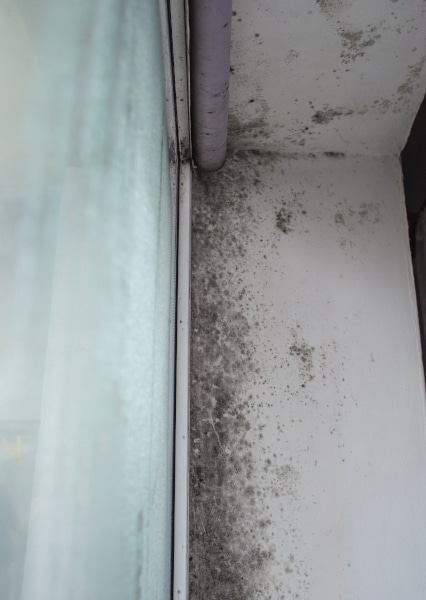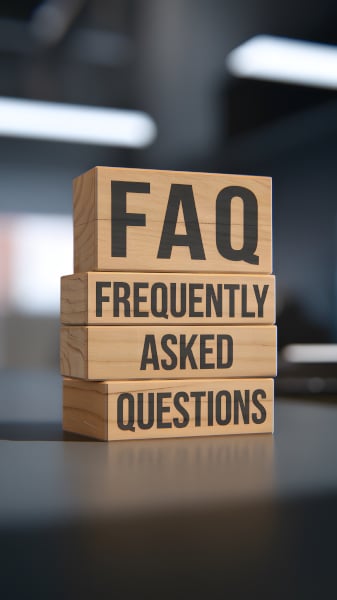Are you dealing with unexpected problems after buying a house in Scotland? From damp patches and faulty heating to missing fixtures and roof leaks, many homebuyers discover issues after they’ve moved in. But what are your legal rights – and can you claim compensation from the seller or surveyor?
In this article, Wallace Quinn Solicitors, with offices in Glasgow, Livingston and Bathgate, explain what buyers in Scotland need to know about post-settlement property issues, including how the Scottish Standard Clauses and the Home Report affect your ability to raise a claim.
For many people, buying a house is the biggest financial commitment they’ll ever make. In Scotland, the conveyancing process is designed to offer clarity, legal certainty, and a structured route from offer to ownership. But what happens when problems emerge after you’ve moved in? The boiler breaks down. Damp appears under the windows. That “fully fitted kitchen” turns out to be missing a couple of promised appliances.
If you’re experiencing problems after buying a house in Scotland, you’re not alone, but your legal options may be more limited than you think.
In this article, we explore what rights you have as a buyer under Scottish property law, how the Scottish Standard Clauses apply, and when (if ever) you might be able to claim against the seller or the surveyor responsible for the Home Report.
Setting the Scene: The Legal Framework Behind a Scottish House Purchase
When you buy a property in Scotland, the sale is formalised through a contract known as the missives. These are usually based on a standardised framework known as the Scottish Standard Clauses (currently Edition 6).
These clauses initially include various seller warranties. For example, that the property will be in the same condition at the date of entry as when the offer was made, or that it will be free of rubbish. However, in practice, most sellers’ solicitors issue what is called a qualified acceptance, which either deletes or significantly limits these warranties.
In other words, by the time the contract is concluded, the buyer is often left with few, if any, enforceable promises about the condition of the property.
Why Post-Settlement Claims Are So Difficult
Once settlement (completion) has taken place and you’ve picked up the keys, your ability to claim against the seller for defects or missing items is usually very limited. Under the principle of “caveat emptor” (buyer beware), the risk effectively passes to the buyer on the Date of Entry.
Unless:
- The seller has breached a specific retained clause in the missives; or
- There has been fraud or deliberate concealment,
You will likely have no right of redress, even if serious issues become apparent soon after moving in.
Some examples of possible exceptions include:
- The seller removed items that were contractually included (e.g. integrated appliances).
- Damage occurred between the conclusion of missives and the Date of Entry.
- The seller left behind hazardous materials or large amounts of rubbish despite agreeing not to.
In most other cases, including common complaints such as hidden damp, faulty heating systems, or roof leaks, the buyer is left to bear the cost, unless another party can be held responsible.
Finally, the Standard Conditions, only allow you five days from completion to intimate a claim to the seller.

The Role of the Home Report — Help or Hindrance?
Most buyers rely heavily on the Home Report, which is a legal requirement in Scotland for almost all residential sales. The seller commissions it, but a chartered surveyor prepares it and includes:
- A Single Survey (condition and valuation),
- An Energy Report, and
- A Property Questionnaire completed by the seller.
Here’s the catch: while the Home Report is helpful, it is not a guarantee of condition. The survey is visual only — surveyors do not move furniture, lift floorboards or perform invasive checks.
Can You Claim Against the Surveyor?
Interestingly, while the buyer doesn’t commission or pay for the Home Report, Scottish law does recognise that the buyer is entitled to rely on it. This means that surveyors owe a duty of care to prospective purchasers.
A buyer might be able to raise a negligence claim against the surveyor if:
- The survey missed a significant, visible defect that should have been picked up during a routine visual inspection.
- The valuation was clearly misleading or inaccurate.
- The report contained incorrect factual information (e.g. wrongly stating that the roof was in good condition).
That said, these claims are not easy to prove. The defect must be serious, reasonably visible at the time, and not caused by deterioration occurring after the inspection. Surveyors also frequently include disclaimers, though they cannot legally exclude liability for negligence.
So, What Should You Do as a Buyer?
Unfortunately, most buyers only discover the limits of their protection after the fact. But there are steps you can take in advance to reduce the risk of unwelcome surprises:
✅ Before You Buy:
- Don’t just rely on the Home Report. If anything in it causes concern, consider instructing your own independent survey, particularly for older properties or those with visible signs of wear.
- Review the Property Questionnaire carefully. It contains seller representations that, in rare cases, may support a legal claim if proven to be false.
✅ Just Before Settlement:
- Ask your solicitor about a pre-purchase inspection or final walk-through to check for damage or missing items.
- Ensure your solicitor discusses with you what clauses are being removed or retained in the final missives.
✅ After Moving In:
- If a serious problem arises, seek legal advice promptly. The longer you leave it, the harder it becomes to establish liability or raise a valid claim.

Conclusion: Buyer Beware, But Be Prepared
Experiencing problems after buying a house in Scotland can be incredibly frustrating, particularly when you’ve followed all the right steps. But the law is clear: unless you’ve retained specific protections in your contract, your ability to claim after settlement is very limited.
However, understanding the system and knowing when to seek professional advice can help you avoid many of the pitfalls.
🔎 FAQ – Common Questions from Buyers
Q: Can I claim against the seller for hidden defects?
A: Usually not, unless there was fraud or the seller breached a specific term in the missives.
Q: What if the Home Report missed something important?
A: You may have a claim against the surveyor if the defect was visible and serious.
Q: Do I need to get my own survey?
A: It’s not required, but it’s often a wise precaution, especially if anything in the Home Report raises concerns.
Q: The seller left rubbish behind – can I do anything about it?
A: Possibly, if the contract said the property would be cleared. Your solicitor can advise if there’s a claim.
Q: The seller said everything was in working order — but now something’s not. Can I claim?
A: Not usually, unless that statement was included in the missives or Property Questionnaire. Verbal assurances rarely create a legal obligation.
Q: What if I find out the property had previous flooding or subsidence that wasn’t disclosed?
A: If the seller denied knowledge of past flooding or structural issues in the Property Questionnaire, and that turns out to be false, you may have grounds for a misrepresentation claim.
Q: Can I take legal action if the seller left the house in a poor state of cleanliness?
A: Only if the missives specifically required the property to be cleaned to a certain standard. In most cases, cleanliness is not a legally enforceable condition.

If you liked this, you might also like these articles:
